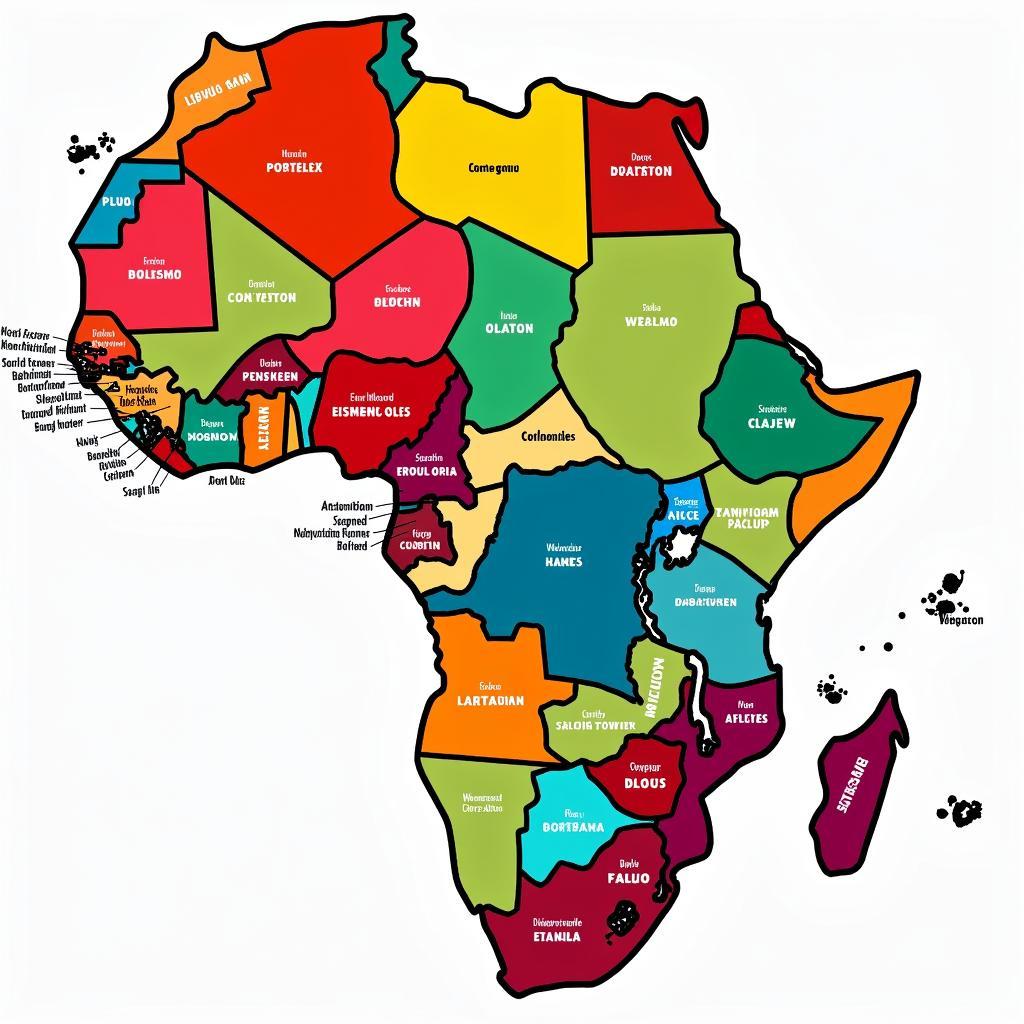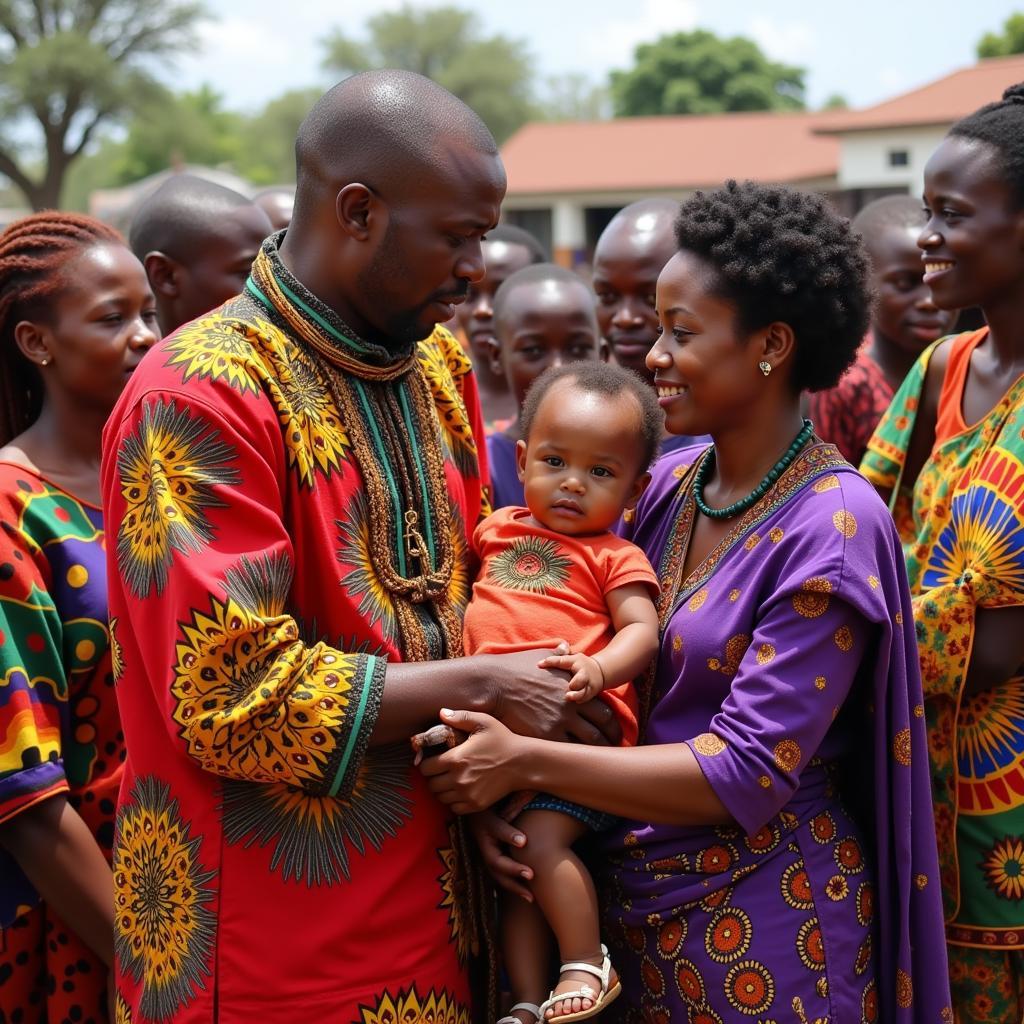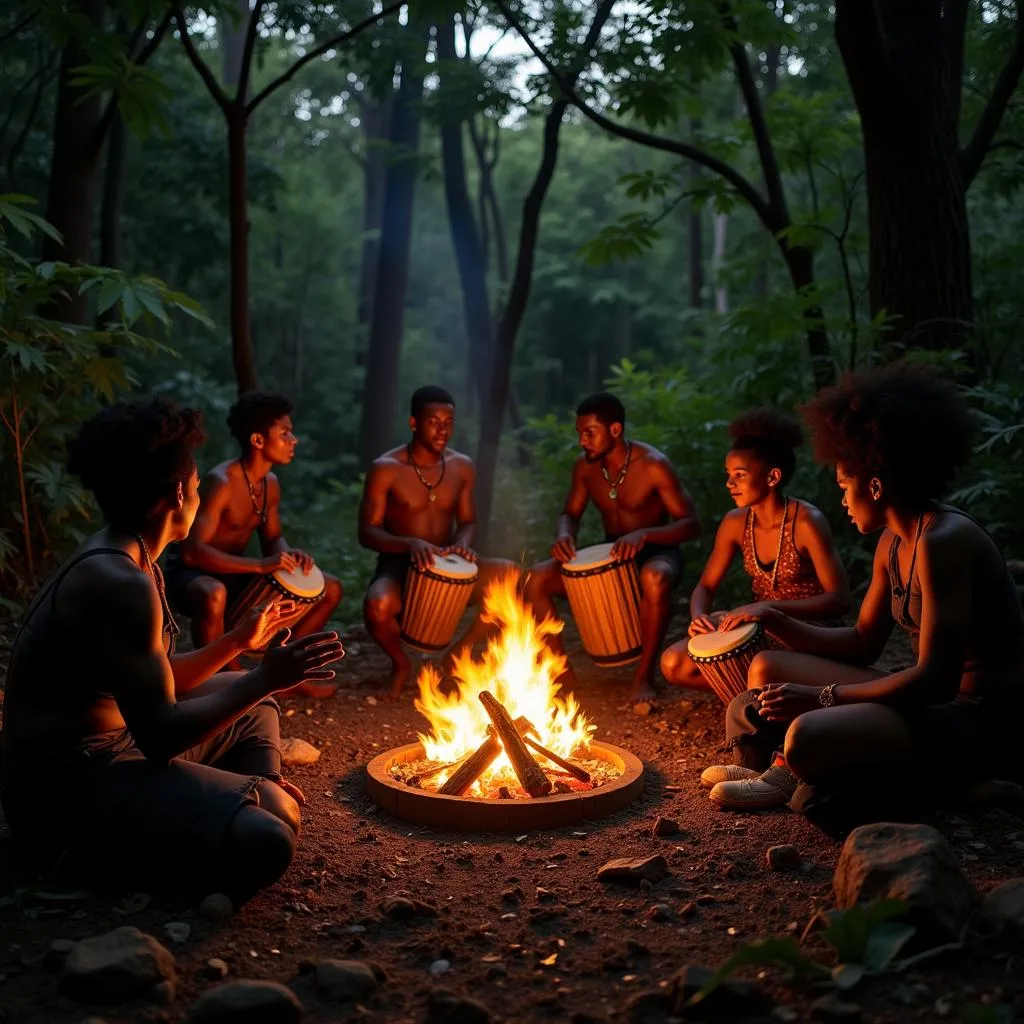Most Popular African Names: A Rich Tapestry of Culture and Meaning
African names are more than just labels; they are stories, blessings, and reflections of a vibrant cultural heritage. They often carry deep meanings related to birth circumstances, family history, or aspirations for the future. This article will delve into the fascinating world of the Most Popular African Names, exploring their origins, significance, and the diverse traditions that shape them.
Choosing a name for a child is a significant event in many African cultures. It’s a process often filled with ritual and careful consideration. Unlike in many Western cultures where names are chosen from pre-existing lists, many African names are created specifically for the child, reflecting unique circumstances surrounding their birth. This personal touch adds another layer of meaning to the most popular African names. Beyond personal stories, many names reflect broader cultural values, beliefs, and connections to ancestry. Exploring these names offers a glimpse into the rich tapestry of African Life and traditions. Let’s begin our journey by looking at some popular names from across different regions of the continent.
Some names, like those honoring ancestors or reflecting specific birth circumstances, become particularly common within families or communities, adding to their popularity. For example, a name meaning “born during the rainy season” might be more common in regions with distinct wet and dry seasons. This connection to the natural world is a recurring theme in many African naming traditions.
After a child’s birth, families often consult with elders or spiritual leaders who offer guidance based on the child’s destiny or personality traits they believe the child embodies. These practices highlight the importance of communal involvement in naming ceremonies and the profound significance attached to a child’s name. You can read about some African good luck symbols here: african good luck symbols.
Unveiling the Meaning Behind Popular African Names
Many popular African names are rooted in various languages spoken across the continent, including Swahili, Yoruba, Igbo, Zulu, and Amharic, among countless others. The linguistic diversity of Africa is reflected in the vast array of names and their unique pronunciations. Each name carries its own rhythm and melody, adding to the beauty and richness of African languages. Understanding the linguistic roots of a name often unlocks a deeper understanding of its meaning and cultural significance.
Exploring Regional Naming Traditions
Different regions of Africa have unique naming customs. In some cultures, children receive multiple names, each with its own special meaning. For instance, a child might receive a name given by their parents, another from their grandparents, and even a nickname bestowed by the community. This layering of names reflects the importance of family and community ties.
 Map of Popular African Names Across Different Regions
Map of Popular African Names Across Different Regions
In some West African traditions, children are named after the day of the week they are born. This tradition connects individuals to specific deities or ancestral spirits associated with each day. These names often carry blessings and expectations for the child’s character and future. Similarly, in some East African communities, children are given names that reflect the circumstances of their birth, such as the weather, a significant event, or the child’s physical characteristics.
The Most Popular African Names and Their Meanings
Let’s explore some examples of the most popular African names and their beautiful meanings:
- Aisha (Arabic origin): Meaning “alive” or “she who lives,” Aisha is a popular name across North Africa.
- Adesola (Yoruba origin): Meaning “crown brings honor” or “wealth adds honor,” Adesola is a unisex name reflecting high status and prosperity.
- Chimamanda (Igbo origin): Meaning “My God will not fall,” Chimamanda evokes strength, resilience, and faith.
- Imani (Swahili origin): Meaning “faith” or “belief,” Imani is a popular name reflecting spiritual values.
- Kwame (Akan origin): A name given to boys born on Saturday, Kwame reflects the tradition of naming children after the day of the week.
 Traditional African Naming Ceremony
Traditional African Naming Ceremony
These are just a few examples of the multitude of beautiful and meaningful African names. This article provides insight into popular choices, but many other cherished names exist within diverse communities. African cream liqueur often plays a part in celebrations like naming ceremonies: african cream liqueur.
“Names are not just arbitrary labels,” says Dr. Abimbola Oladeji, a renowned linguist specializing in African languages. “They are powerful symbols of identity, heritage, and belonging. They connect us to our past and shape our sense of self.”
The Evolution of African Names in the Modern World
While many traditional naming practices continue, modern influences are also shaping African names. Some parents choose to combine traditional African names with names from other cultures, creating unique and blended identities. The increasing interconnectedness of the world has led to a greater exchange of cultural practices, including naming conventions. You might enjoy learning about African fried dumplings: african fried dumplings.
“We are seeing a fascinating evolution of African names,” says Mr. Kofi Annan, a cultural historian specializing in African traditions. “While traditional names remain deeply cherished, the influence of globalization and cultural exchange is leading to new and innovative naming practices.”
The popularity of certain names also fluctuates over time, reflecting changing social trends and preferences. Names that were common a generation ago might be less popular today, while new names emerge and gain favor. This constant evolution keeps the world of African names dynamic and vibrant. To learn more about the countries on the continent, consider checking this out: african continent countries name list. You can also find challenging crosswords related to African hot sauce here: african hot sauce crossword.
Conclusion: The Enduring Power of African Names
The most popular African names represent a rich and diverse tapestry of culture, history, and tradition. They are more than just labels; they are stories waiting to be told, legacies carried forward, and connections to a vibrant past. By understanding the meanings and origins of these names, we gain a deeper appreciation for the beauty and complexity of African cultures. The enduring power of African names lies in their ability to connect us to our heritage and inspire us to embrace the richness of our shared human experience.
FAQ
-
What are some common themes in African names? Common themes include birth circumstances, ancestral connections, character traits, and aspirations for the future.
-
How are African names chosen? Naming practices vary across different cultures, but often involve family elders, spiritual leaders, or rituals related to the child’s birth.
-
Do African names have specific meanings? Yes, most African names carry deep meanings reflecting cultural values, beliefs, or personal stories.
-
Are African names changing over time? Yes, while traditional names remain important, modern influences and cultural exchange are leading to new and evolving naming practices.
-
Where can I learn more about African names? Resources such as books, online databases, and cultural centers offer valuable insights into African naming traditions.
-
Why are African names important? They are powerful symbols of identity, heritage, and belonging, connecting individuals to their past and shaping their sense of self.
-
What is the significance of naming ceremonies in African cultures? Naming ceremonies are important rituals that mark the child’s entry into the community and often involve blessings, prayers, and celebrations.
Do you have any other questions about African names? Explore more about African traditions and culture on our website!
When you need assistance, please contact us. Phone Number: +255768904061, Email: kaka.mag@gmail.com Or visit us at: Mbarali DC Mawindi, Kangaga, Tanzania. We have a 24/7 customer support team.
